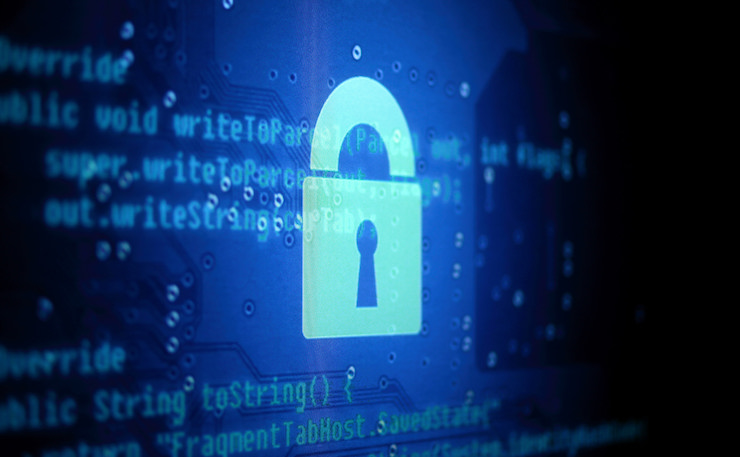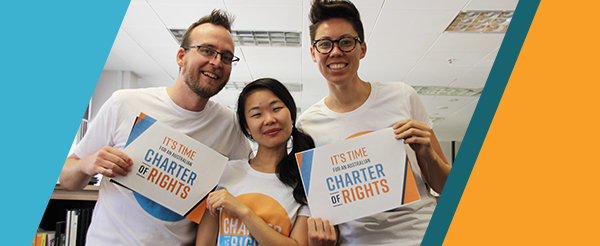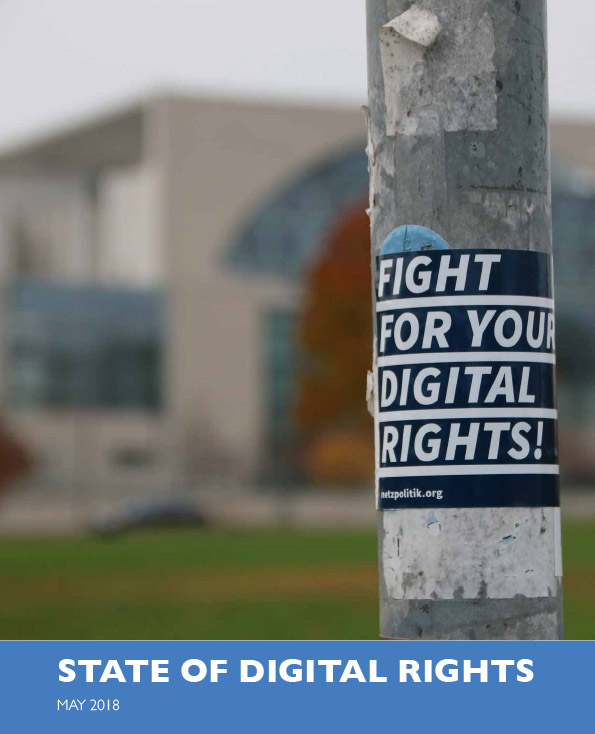As Australians consider how to cast their votes in the 2019 Federal Election, we wanted to ensure that some key digital rights policies are highlighted and addressed. That’s why we’ve …
McKell Cybersecurity Policy Luncheon
Join the McKell Institute for a panel and forum on data security, encryption and the Assistance and Access Act 2018. Panellists will speak about their involvement with the Bill and …
Open letter on the Terrorism Database
Digital Rights Watch has joined with dozens of organisations and academics in signing an open letter about the EU’s proposed Regulation on Preventing the Dissemination of Terrorist Content Online, and …
Lizzie O’Shea on the encryption bill
Our own Lizzie O’Shea spoke to ABC24 about the Assistance and Access Bill and the impact on how all Australians use technology.
Providing evidence to Parliamentary committee on the Encryption Bill
Digital Rights Watch’s Lizzie O’Shea and Access Now’s Nathan White give evidence to the Parliamentary Joint Committee on Intelligence and Security on the Assistance and Access Bill 2018. A transcript …
How much do political parties know about you?
Political parties know more about you than you may realise.Parties are looking for whatever edge they can get, and increasingly, that edge comes in the form of personal data. While …
Electoral Matters hearings on cyber influence of elections
Digital Rights Watch Chair Tim Singleton Norton provides evidence to the Joint Committee on Electoral Matters inquiry into the cyber manipulation of elections. Read more in our submission to the …
PJCIS hearings on Assistance and Access Bill
Angus Murray, Dr Suelette Dreyfus and Justin Clacherty appear before the Australian Parliamentary Joint Committee on Intelligence and Security, to outline civil society concerns with the Telecommunications and Other Legislation …
Slow down, stop and listen
Consumers, human rights groups, industry, telcos and technology companies join forces to sound alarm at Government’s spyware legislation A diverse group of consumer representatives, human rights organisations, industry, technology and …
Sleepwalking into a digital dystopia
We’re in the midst of a worsening democracy deficit, and you need look no further to see this on full display than within the shambolic process around the Telecommunications and …
Tell Labor to defend encryption
Stand up and tell Labor that you don’t support efforts to break encryption.
Charter of Rights
Our lives are better when we all treat each other with respect and compassion. That’s why it’s so important the values that everyone holds dear – like fairness and equality …
The internet holds society together and the government is setting out to break it
The Australian Government has finally released its draft bill on encryption, which would see law enforcement granted unprecedented new powers, including the ability to crack open encrypted communication.
Defend encryption in Australia
Stand up and tell the government that you don’t support efforts to break encryption.
Joint call to G20 Leaders
Digital Rights Watch has joined over 100 organisations in appealing to G20 leaders to bring human rights to the centre of our digital future.
How to opt-out of the federal medical database
From today, you can choose whether or not you will be included in the largest mandatory medical database in Australian history. We’re encouraging you to consider opting out.
Digital rights groups launch campaign to protect encryption
Join with us and call on the Australian Government to support encryption and to reject any moves to undermine the security of our digital infrastructure.
The State of Digital Rights
Today, we’re proud to release the State of Digital Rights report, which outlines the many ways Australians’ rights are being impacted by the activities of private companies and governments in the online world.
Live Hack: Melbourne
Is your metadata a trail of breadcrumbs that anyone can follow? We’re partnering with Melbourne Knowledge Week to investigate the tracking capacity of the city of Melbourne.
Understanding the Cambridge Analytica data breach
Our take on the Facebook Cambridge Analytica data breach affair
















